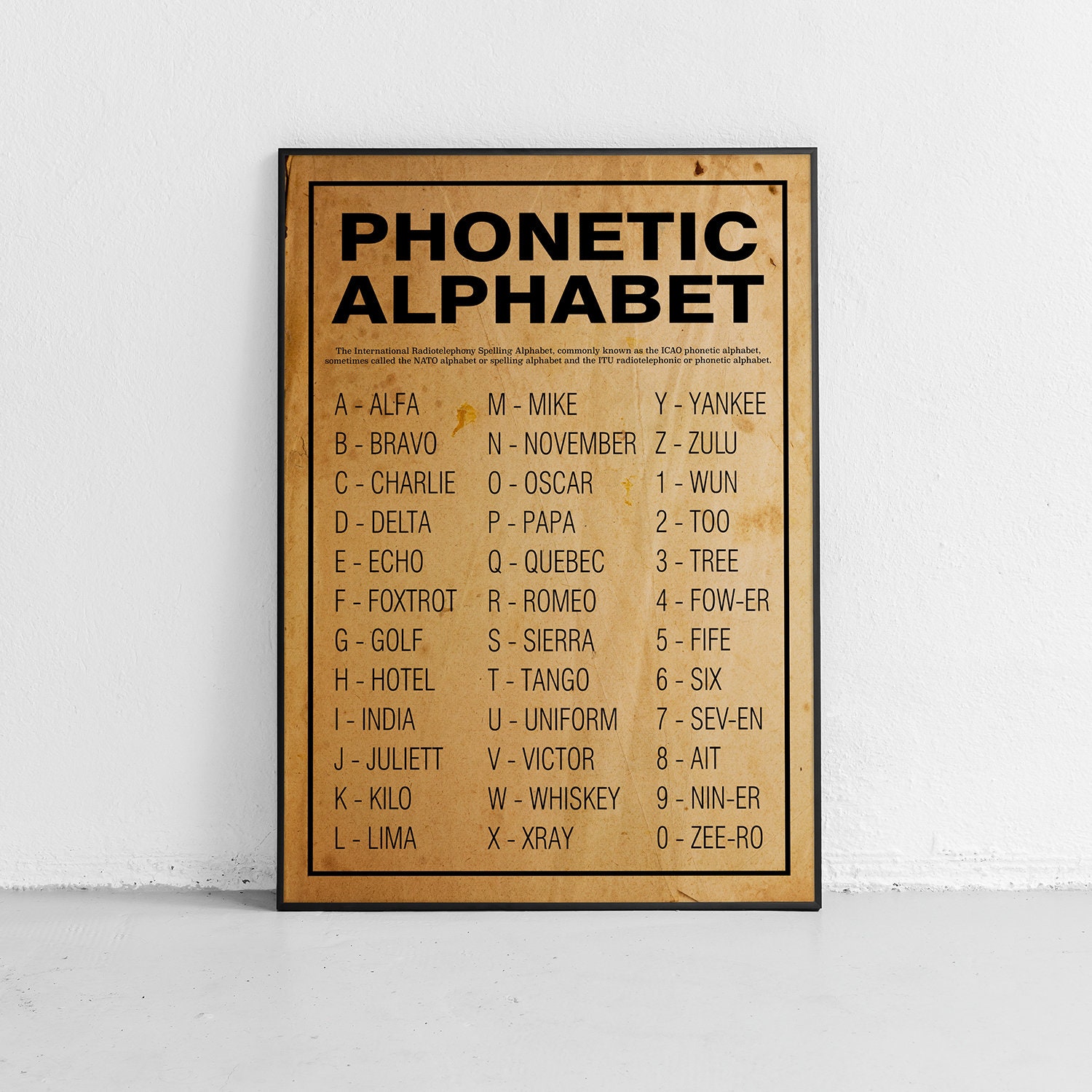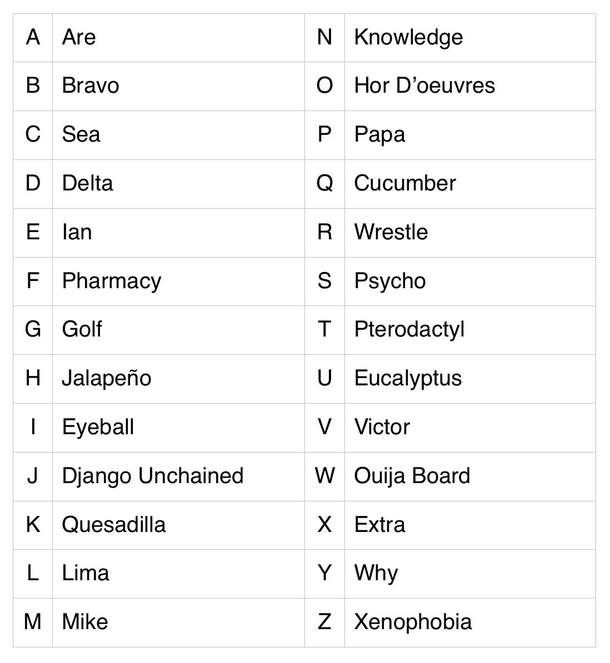
This article was translated from German by Dagmar Breitenbach. The final reform is scheduled to take effect in the third quarter of 2022. Simultaneously, the Weimar Republic phonetic alphabet will temporarily become valid - not officially, but symbolically and alongside the alphabet used in Germany since 1983.

No matter the arguments, the German Institute for Standardization is already tackling a reform.Ī draft spelling alphabet made up of city names is expected by fall 2021. Whether old-fashioned names like Albert and Nathan make spelling easier these days is debatable. Other changes made after World War II did not involve terms instituted by the Nazis at all, for instance Marie was replaced by Martha in 1950.Īs Blume told DW, some people reluctant to the changes argue that they have been using the terms in the German spelling alphabet since childhood. The move would not involve too many changes as the names Zacharias and Samuel rejoined the alphabet in 1948, followed by Theodor, Heinrich and Friedrich in 1950 - they were all used during the Weimar Republic but deleted by the Nazis. Michael Blume's research alerted him to Nazi terms in the German spelling alphabet Weimar Republic phonetic alphabet to be reinstated - symbolically The anti-Semitism commissioner of the German state of Baden-Württemberg contacted the German Institute for Standardization (DIN) and suggested a return to the Weimar Republic phonetic alphabet. After World War II, the use of Ypres was replaced by the German name of the letter Y, Ypsilon, but the term Nordpol is still in use in the German alphabet today.ĭuring research for his 2019 book Why anti-Semitism threatens us all, Michael Blume came across the Nazi background of some of the terms in the current German phonetic alphabet. It is the Alpha, Bravo, Charlie alphabet you might have heard of, but maybe not the Thai company employee or the Egyptian medical secretary with just a little understanding of English, therefore we provide as well a list of simple English words which can.

The most widely used spelling alphabet is the NATO phonetic alphabet, which is also used in aviation like in communication between a pilot and the control tower. In Nazi ideology, North Pole stands for the Aryan master race, while Ypres is the name of the Belgian city where German troops introduced lethal mustard gas during the First World War. There are several spelling alphabets in use in international radiotelephony. Two new terms were introduced that were particularly cynical: the Nazis replaced Nathan with Nordpol (North Pole) and Ypsilon (the German word for the letter "y") with the word Ypres. Names were swapped out: Anton for Albert and Dora for David.
#Old international radiotelephony spelling alphabet code
The 26 code words in the NATO phonetic alphabet are assigned to the 26 letters of the English alphabet in alphabetical order as follows: Alfa, Bravo, Charlie, Delta, Echo, Foxtrot, Golf, Hotel, India, Juliett, Kilo, Lima, Mike, November, Oscar, Papa, Quebec, Romeo, Sierra, Tango, Uniform, Victor, Whiskey, X-ray, Yankee, Zulu.Germans use 'Wilhelm' for the letter W that's 'Whiskey' is the International Radiotelephony Spelling Alphabet

Instead, the International Civil Aviation Organization (ICAO) alphabet assigned code words acrophonically to the letters of the English alphabet so that critical combinations of letters and numbers can be pronounced and understood by those who transmit and receive voice messages by radio or telephone regardless of language barriers or the presence of transmission static. Although often called “phonetic alphabets”, spelling alphabets are not associated with phonetic transcription systems such as the International Phonetic Alphabet.

The Military Phonetic Alphabet ( NATO phonetic alphabet), more accurately known as the International Radiotelephony Spelling Alphabet and also called the ICAO phonetic or ICAO spelling alphabet, as well as the ITU phonetic alphabet, is the most widely used spelling alphabet. The International Civil Aviation Organization created the International Radiotelephony Spelling Alphabet, tied to the English alphabet, to ensure that letters are properly pronounced and understood by air traffic controllers and pilots around the world, despite what languages are spoken.


 0 kommentar(er)
0 kommentar(er)
